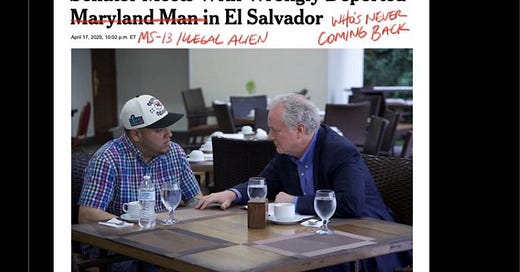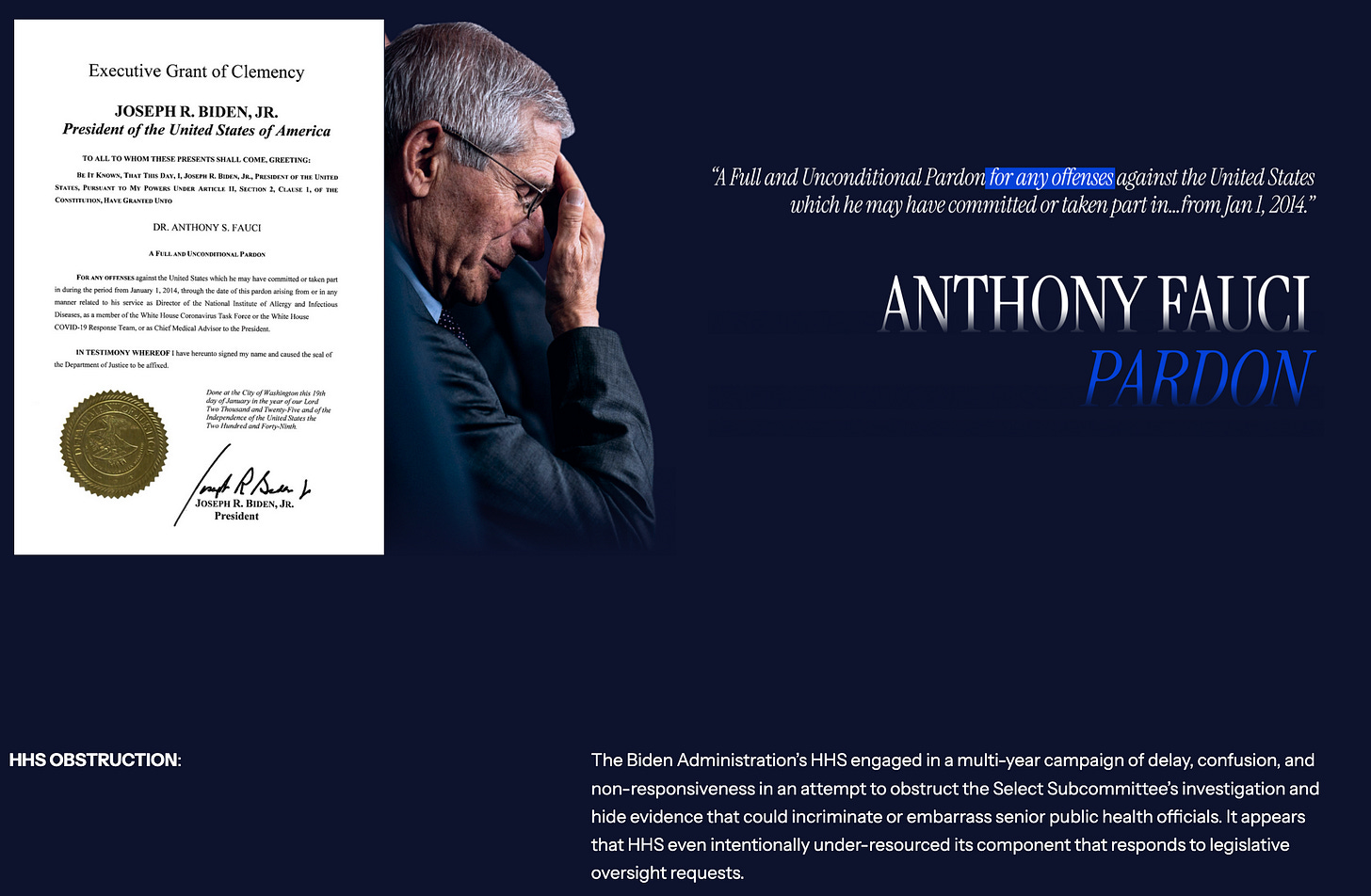The very last copy
This post started out as a reference to Ab Fab and ended up as a meditation on despair. Welcome to 2025.
I
I started writing this post in mid-April. It was based around a kinda silly comparison between the state of the USA and, of all things, a scene from Absolutely Fabulous. Here’s how the draft began:
Bear with me here, but there’s a scene in one of the early episodes of Absolutely Fabulous where Bubble looks at Patsy and says, “You look very faint. It’s like the photocopier’s running out of ink. You’ve been roneoed1 and roneoed and roneoed and roneoed, over and over.” She lifts Patsy’s chin with her hand and looks closely. “This,” she concludes, “is the very last copy.”
That’s as far as I got.
The very last copy. I’m living in it: a country where everything is a facsimile of a facsimile, a faded reproduction of some sort of long-lost past. And there’s a constant sense of being gaslit, a constant tension between mythology and reality. The sugar in your Coca-Cola isn’t sugar at all. The meat in your Big Mac today is an industrialised nightmare reflection of what you might have gotten 80 years ago from Richard and Maurice McDonald’s modest little San Bernardino burger bar. But who can even say any more? Did the original item ever exist? Does it matter?
It’s no accident that the slogan “Make America Great Again” presupposes the existence of a time when America was great. When was that time? Ask a hundred different people and you’ll get a hundred different answers, because the mythology is about the present, not the past. If those hundred people agree on anything, it’ll be the idea that right now, America is not great at all. And they’ll be right—this country feels hollowed out, eaten away from within, eroded by greed and venality, rotoed and rotoed and rotoed in pursuit of profit. You hold in your hand the very last copy, and a thousand sad-eyed salesman insist to you that what you’re actually holding is better than the real thing ever was.
The very last copy. It was going to be funny. I’m good at that, you know. In a lot of ways, it’s all I’ve ever aspired to: writing that combines heart and humor. But the piece sat unfinished, because I can’t really bring myself to be witty or funny any more. I feel numb. And with every passing day, I despair.
II
I don’t know that I’ve experienced genuine despair before.
I’m very much aware of the fact that this makes me extremely lucky. I’m 47 in May. I don’t know how many people in the world can claim to have avoided a sense of complete impotence and hopelessness for that long. I was born in 1978; I could have emerged into the world amidst the horrors of the Cambodian killing fields, or the Troubles in Ireland, or the townships of apartheid South Africa.
But no. I was born in Australia. And even in that context, I won the lottery: I was born into a middle-class life in Melbourne. I got a scholarship to an expensive private school. Doors opened for me. Everyone has to live their own life, of course, and this isn’t meant to be a sort of flagellatory exercise in privilege-checking. I’ve had my fair share of shit to deal with. Everyone does. But for the first four and a half decades of my life, I carried a sort of unspoken conviction that ultimately, things would be OK.
If you’re reading this, you probably know that for the last decade, I’ve been rewriting, procrastinating and generally agonizing over working on a novel. My friend Rod refers to it as the GUNT—the Great Un-Australian Novel by Tom. I don’t know if it’s great, but it’s certainly un-Australian and it’s certainly by Tom. Its genesis came in seeing the way Australia treated refugees, and my original intention was to peel away Australia’s cultural mythology–a fair go, mateship, all that shit—and examine the hypocrisy and cynicism beneath. The first incarnation of the narrative was based on the story of Cornelia Rau, and imagined a situation where immigration detention was used as a weapon against citizens and non-cirizens alike.
In the years since, the scope of the story has expanded, which is perhaps part of the reason it remains unfinished. But I think that the main reason is that, in retrospect, I’ve never really had complete belief in my vision. It’s one thing to look at the world and reason your way to an understanding that once they exist, systems of detention and punishment originally created to victimize one minority can and most likely will be turned against whichever other minorities happen to be undesirable to those in power at any given moment.
But it’s another to really believe that, especially when your own life experience is one of relative comfort and fortune. Wasn’t i maybe just being a bit… hysterical? Wasn’t it all a bit much? This feeling of complacency is something I’ve tried to capture in the book, too. It feels very Australian to me.
Anyway, the bitter irony is that over the last two years, there’s been a constant stream of real-life events that have mirrored things I took out of the fucking novel for fear of them being too on the nose. The USA setting up an immigration detention camp at Guantanamo Bay? The wholesale algorithm-driven collapse of creative industries? (Oh yes, that’s in there, too.) I rejected all these plot points for feeling like they were too … too much.
This isn’t an “I was right” post–believe me, being right about this stuff has proven the absolute least fulfilling and satisfying experience of vindication I’ve ever had. I wish I’d believed myself more. I wish I’d listened to myself.
III
Not long after I returned to the USA, my former colleague Elizabeth kindly took me as her +1 to the New York Times opinion section’s Christmas party. (Yes, apparently the various sections get their own parties.) I did my very best to network, dear readers. I really did. And at one point I got talking to a gentleman who was part of the paper’s editorial board. He was very pleasant, and he did not understand me in the slightest:
- Are you enjoying being back in the USA?
- I mean, not really. But being here does feel more honest to me, somehow.
- What do you mean?
- Well, Australia and the USA aren’t really that different: they’re both capitalist hellscapes, it’s just that the USA is more honest about it.
- …
- Like, Australia maintains this veneer of faux care for its citizens. The USA doesn’t pretend to care at all. And honestly, if someone is going to fuck me in the arse, I’d prefer them to be honest about the fact that that’s what they’re doing.
- [laughs heartily]
- I’m … I’m not joking, man.
- …
The NYT have yet to accept one of my pitches.
And now it’s Friday night in Brooklyn. April 18. Here are some things that happened today. The official White House Twitter2 account posted this:
…and the official White House page about COVID was pulled down to be replaced with whatever the fuck this is:
Be careful what you wish for, I guess. Being here feels a bit too real these days.
IV
Last week, The Guardian published a report on an Australian who was detained at the border. The guy in question—he’s referred to as Jonathan in the story, which may or may not be his real name—was here on a valid work visa and was returning from a short trip home for his sister’s memorial. He was detained for 30 hours before he was allowed to contact anyone. And then he was deported for completely nonsensical reasons.
Obviously, my first thought was “this could have been me”. Perhaps one day it will be me.
Two weeks ago, I came back from a trip to Mexico. Here’s what I did the day I flew:
I made my Twitter and Facebook accounts 100% private;
I discovered that BlueSky cannot be made private, so I went through every post I’ve made there and deleted anything remotely critical of this administration or expressive of left-wing views;
I removed any biometric unlocking facilities—fingerprint and face recognition—from my phone, iPad and laptop;
I deleted the Messenger, Instagram and Facebook applications from my phone and iPad;
I made sure that I was logged out of all these sites, and of my email accounts, on my laptop;
I removed all the articles that addressed politics in any way from my website; and
I searched my name with Google and DuckDuckGo to see what would come up, and sighed with relief when nothing overtly political appeared on the first page or two.
Before Jonathan was deported, the immigration officer who made the decision called him “retarded” and proclaimed that “Trump is back in town; we’re doing things the way we should have always been doing them.”
The Guardian contacted the Department of Homeland Security for comment on Jonathan’s case. The response said, “[We] cannot answer questions on something we cannot verify the veracity of. Just like I cannot confirm the existence of big foot. [sic]”
V
They don’t care.
Not one little bit.
They don’t have to care.
Not anymore, because the mask is off now—the cheap plastic mask, made in China— and their faces are red and beaded with gleeful sweat and they are laughing at us.
They are sneering.
They venerate ignorance as virtue, and crow with delight at their own exuberant stupidity.
And I hate them.
I am frightened by how much I hate them.
And I despair.
I wasn’t familiar with this term; it turns out that it’s a case of a brand name becoming a generic verb, like “hoovering” or “photoshopping” or “googling”. It refers to the Roneograph, a popular brand of mimeograph during that technology’s time in the sun.
No i will absolutely fucking NOT refer to it as “X”.






